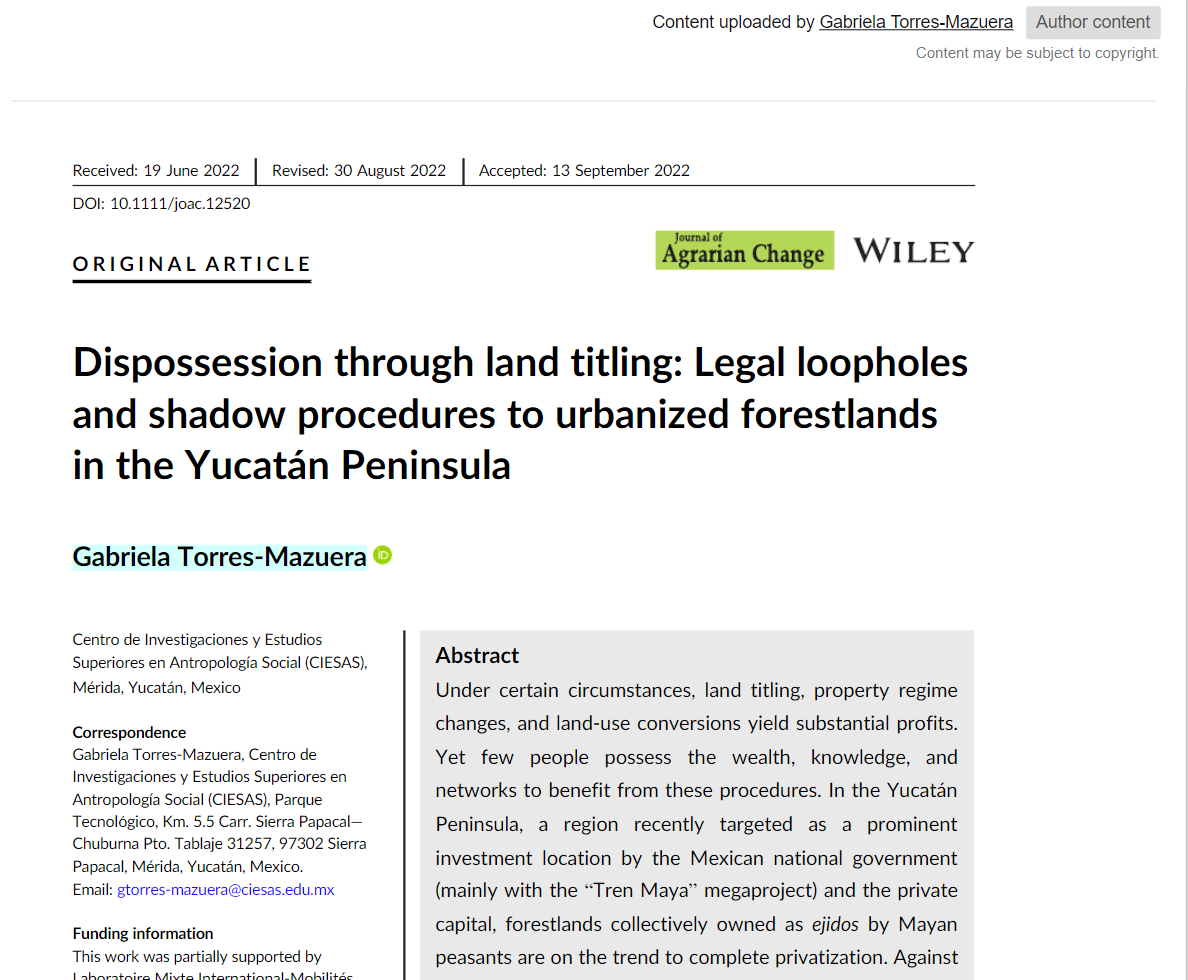Resource information
Under certain circumstances, land titling, property regime changes, and land‐use conversions yield substantial profits. Yet few people possess the wealth, knowledge, and networks to benefit from these procedures. In the Yucatán Peninsula, a region recently targeted as a prominent investment location by the Mexican national government (mainly with the “Tren Maya” megaproject) and the private capital, forestlands collectively owned as ejidos by Mayan peasants are on the trend to complete privatization. Against the arguments of neo‐institutional economists that in the 1990s promoted legal reforms and justified land‐titling programmes worldwide to make available credit for uncapitalized peasants, individual land titling of commonly held lands in Mexico increased the overall economic value of the land, but not the investment in economic activities related to farmland and indigenous communities. Instead, those policies enabled land grabbing, dispossession, and urbanization. In this article, I describe recent private‐led initiatives of ejido land titling that have redefined agricultural land's uses, meanings, and values for capitalist accumulation. In doing so, I explain how and why Mayan ejidatarios have been excluded from the monetary benefits of land titling, a top‐bottom dispossession process only accomplished through shadow procedures and former privatization of ejidos' common lands.


